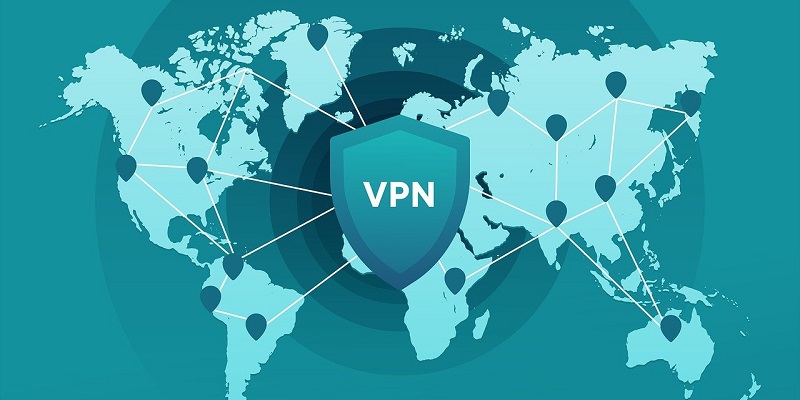In today’s digital age, where remote work and global connectivity are the norm, virtual private networks (VPNs) have become increasingly relevant to the success of digital transformation for teams and employees. This article examines the benefits and importance of VPNs in enhancing productivity, safeguarding online activities, and protecting businesses from cyber threats.
Benefits of VPNs for organizations
By enabling secure and seamless remote access to company resources, VPNs empower employees to work from anywhere, at any time. This flexibility boosts productivity by eliminating barriers to collaboration and allowing teams to effectively communicate and share data.
Extension of Business Reach
VPNs provide organizations with the ability to extend their reach beyond geographical boundaries. By connecting to servers located in different regions, businesses can access local content, serve customers worldwide, and expand their market presence without physical infrastructure investments.
Improved Customer Experience
With VPNs, businesses can offer customers a personalized and localized experience by presenting their services as if they were based in the customers’ region. This localization enhances customer satisfaction as it enables faster access to content and eliminates geo-restrictions, enabling a smoother user experience.
Global Scalability
VPNs facilitate the scalability of businesses by allowing seamless connections across distributed locations. Organizations can easily set up and manage networks in multiple locations, enabling efficient communication, sharing of resources, and centralized management of operations.
VPNs as Vital Tools for Protection, Security, and Privacy
In an era where cyber threats are rampant, VPNs play a crucial role in safeguarding online activities. By encrypting internet connections and routing traffic through secure servers, they offer an added layer of protection against unauthorized access, data breaches, and surveillance. VPNs ensure that critical business data and sensitive information remain secure from prying eyes.
Secure and Private Connections for Data Security and Privacy
One of the main benefits of VPNs is the enhanced security and privacy they provide. Through encryption, VPNs protect businesses handling sensitive data, such as financial transactions, personal information, and intellectual property. VPNs ensure that this data remains secure, protecting organizations from potential cyber attacks or data leaks.
The Role of VPNs in Securing Businesses Handling Sensitive Data
Digital transformation relies heavily on the exchange and storage of valuable data. Hackers are well aware of this, making data security a top priority for organizations. VPNs use encryption algorithms to scramble data, making it unreadable to anyone without the cryptographic key. Encryption ensures that sensitive information remains confidential and protected from unauthorized access.
Defense Against Malware and Phishing Attacks
VPNs not only provide data encryption but also protect users from malware and phishing attacks. By routing internet traffic through secure servers, VPNs act as a shield, blocking malicious websites, suspicious downloads, and preventing potential security breaches. VPNs offer an additional layer of defense against cyber threats, minimizing the risk of falling victim to harmful online activities.
Prevention of Access to Compromised Websites
Visiting compromised websites can expose businesses to security vulnerabilities. However, VPNs can protect users from accessing such websites by acting as gatekeepers. When connected to a VPN, users’ traffic is routed through safe and trusted servers, reducing the chances of encountering harmful websites or becoming victims of cyber attacks.
Avoiding IP/DNS Leaks for Enhanced Security
Good VPNs ensure that there are no IP/DNS leaks, which pose a security problem. IP or DNS leaks can inadvertently reveal users’ real IP addresses, allowing for possible tracking or surveillance. However, VPNs with robust security measures prevent such leaks, offering enhanced anonymity and protection.
Enabling Kill Switch and Multifactor Authentication
VPNs provide additional security measures through features like kill switch and multi-factor authentication. Kill switches immediately terminate internet connections if the VPN connection drops, preventing any data from being transmitted unprotected. Multi-factor authentication adds an extra layer of verification, making it extremely difficult for hackers or third parties to gain unauthorized access to networks.
VPNs as Essential for Businesses in Countries with Strict Internet Censorship Laws
In countries with strict internet censorship laws, VPNs are indispensable for organizations. VPNs allow businesses to bypass government restrictions and access blocked content, ensuring the flow of information and enabling operations in unfavorable digital environments. By encrypting and rerouting internet traffic, VPNs help organizations maintain digital freedom and overcome censorship challenges.
Cost Savings in Hardware and Infrastructure for Businesses
PNs offer cost reductions for businesses operating in multiple locations. Instead of establishing physical infrastructure in each location, organizations can leverage VPNs to connect remote offices, saving on hardware and maintenance costs. VPNs enable businesses to build secure and private networks over existing internet connections, creating a cost-effective solution for global connectivity.
The use of VPNs has become essential in the digital transformation journey of organizations. By enhancing productivity, safeguarding online activities, and protecting against cyber threats, VPNs provide crucial support to businesses. Moreover, by enabling global scalability and overcoming internet censorship challenges, VPNs offer cost-efficient opportunities for organizations to thrive in today’s interconnected world. Embracing VPN technology empowers organizations to securely navigate their digital transformation and unlock the full potential of the digital era.

